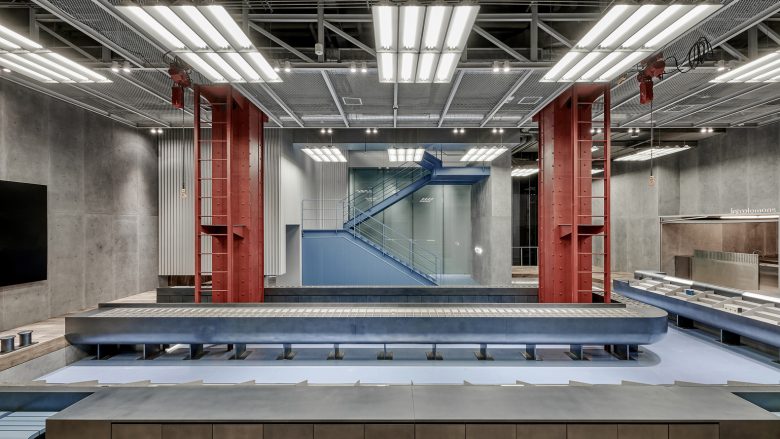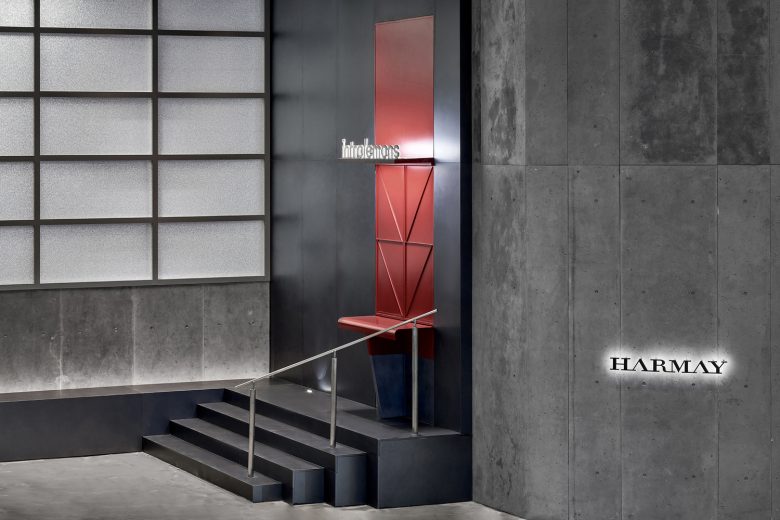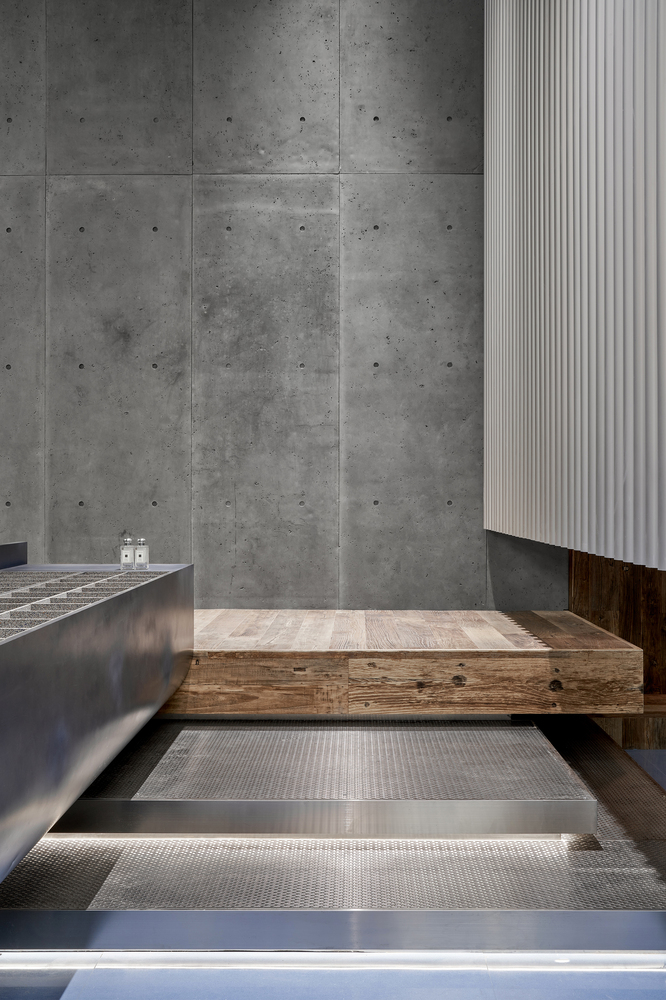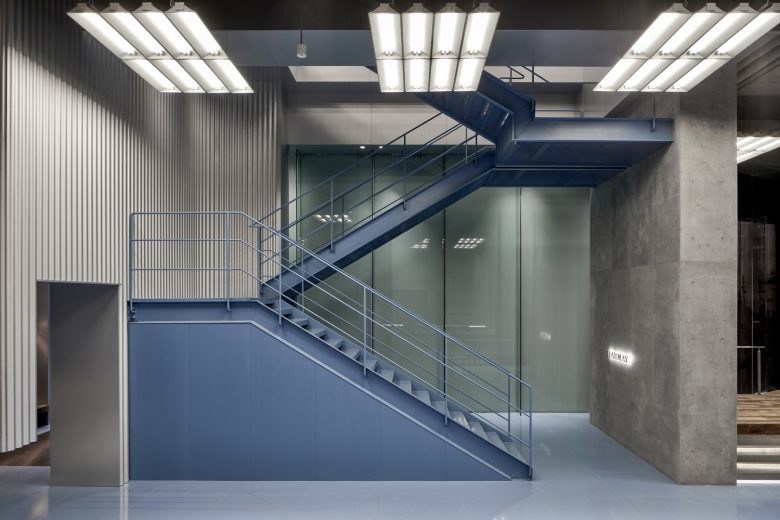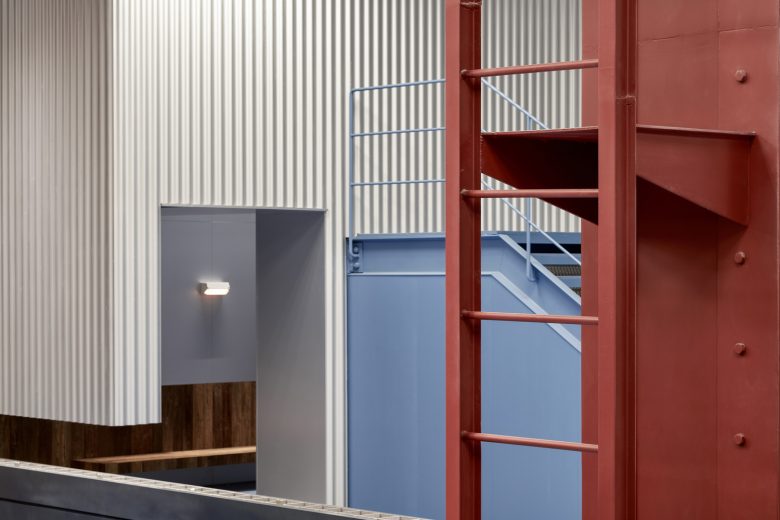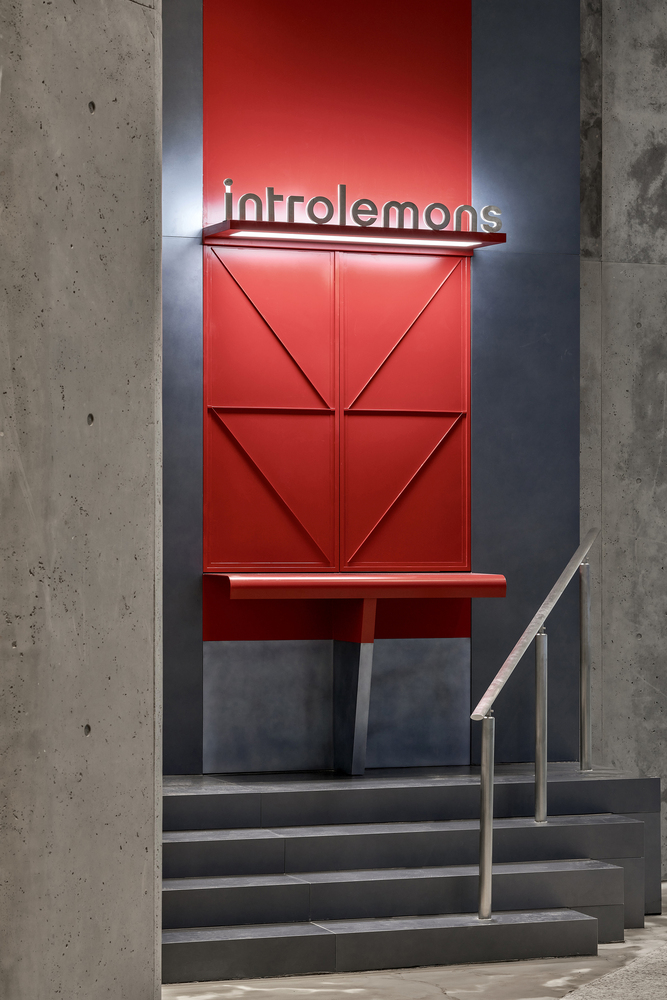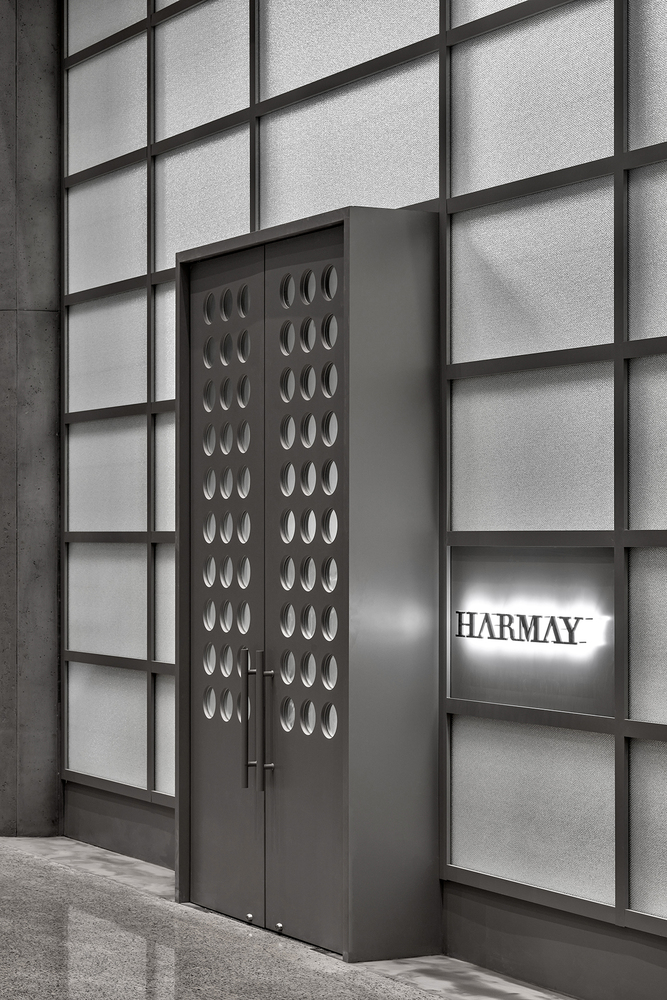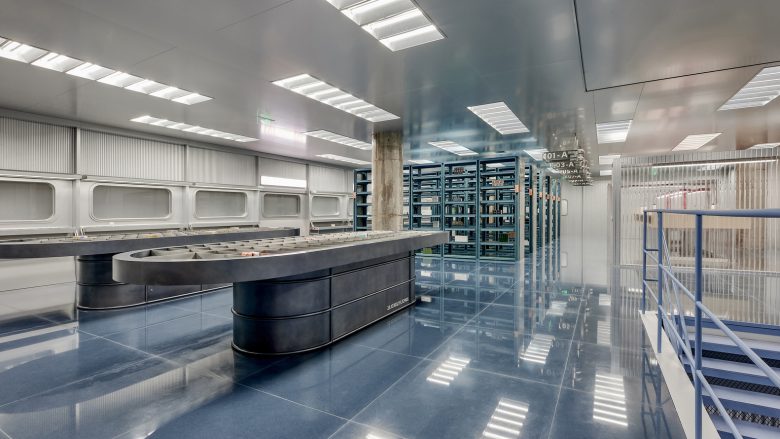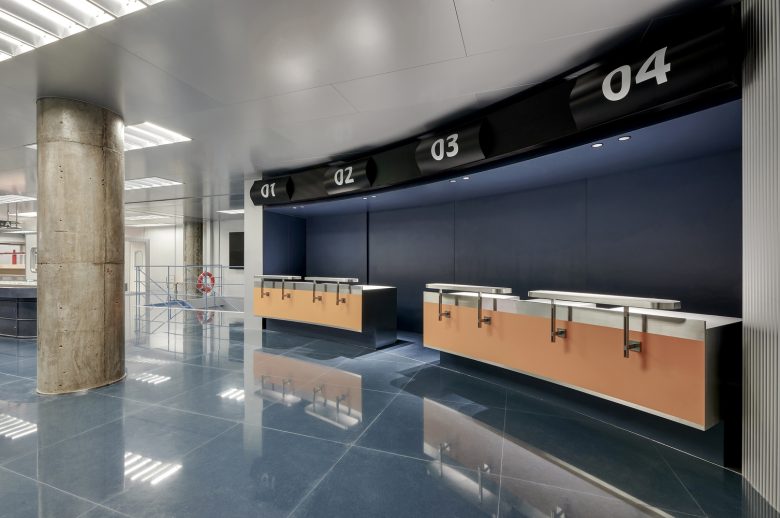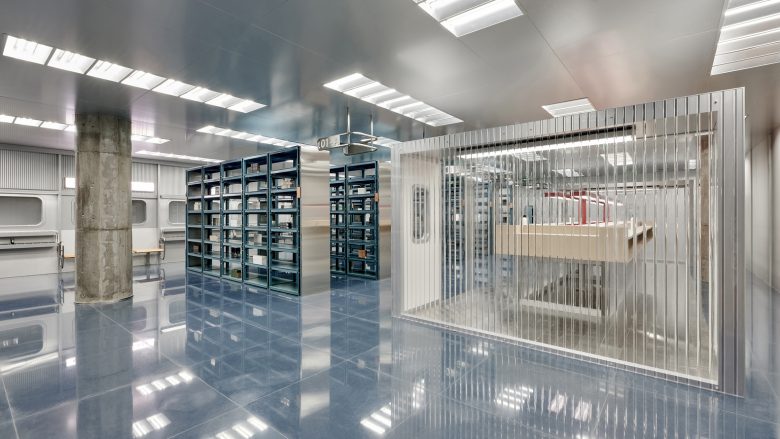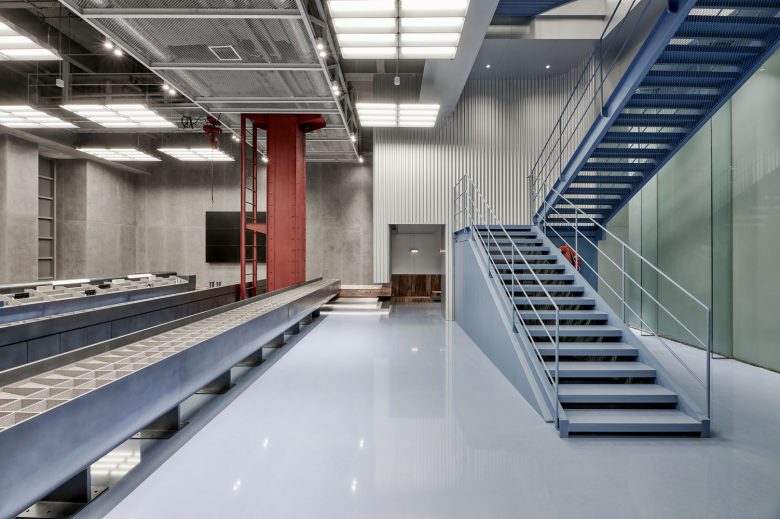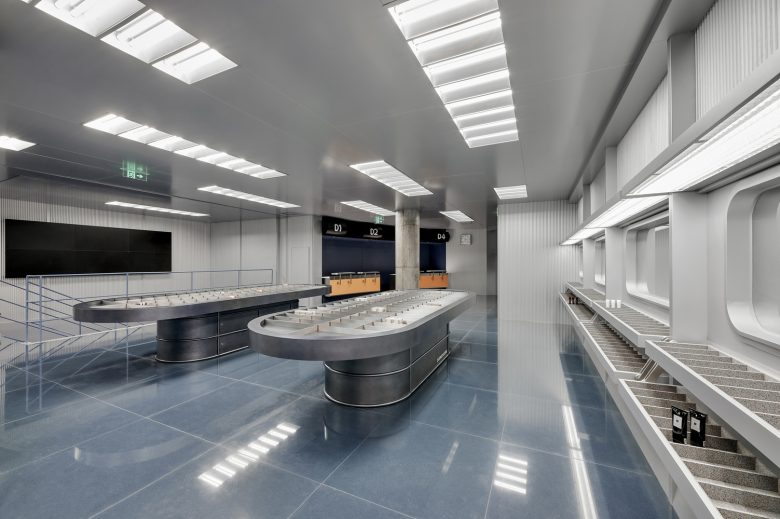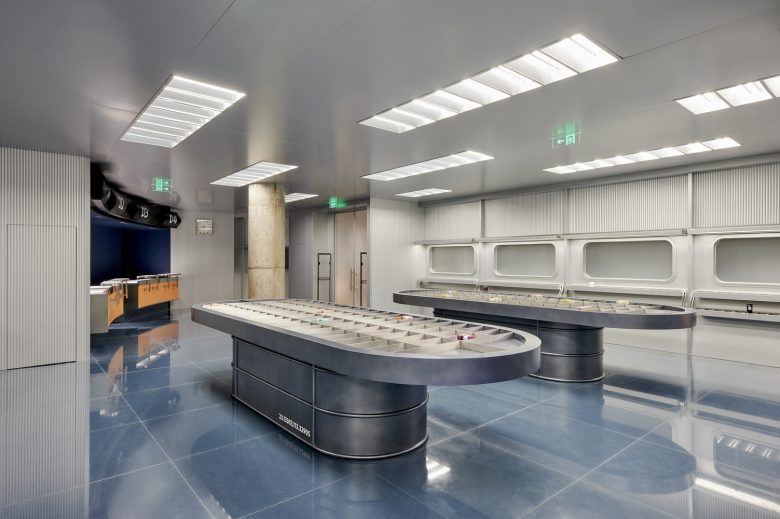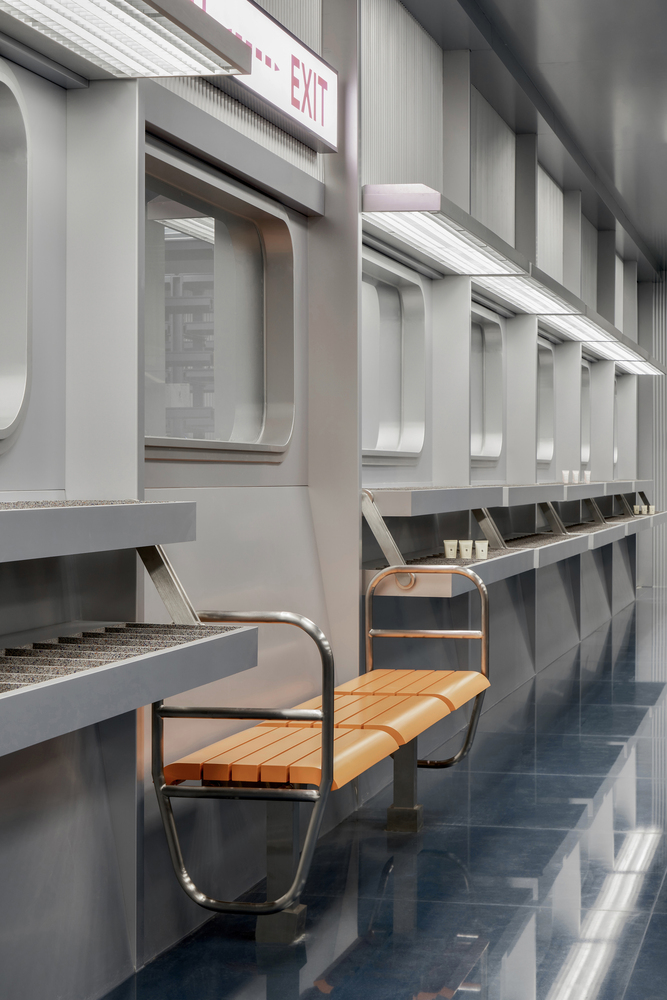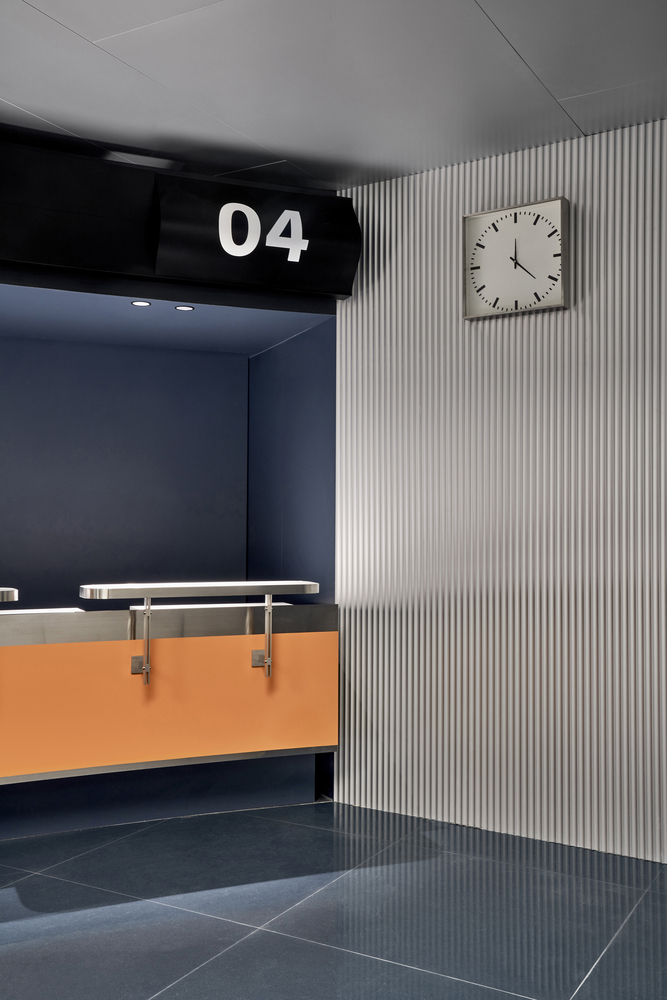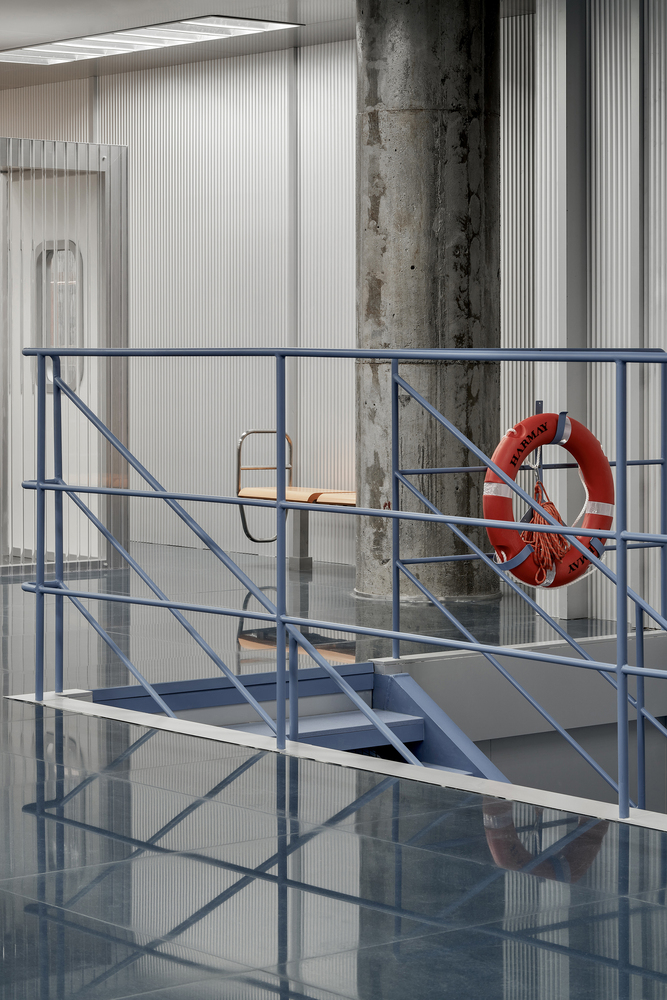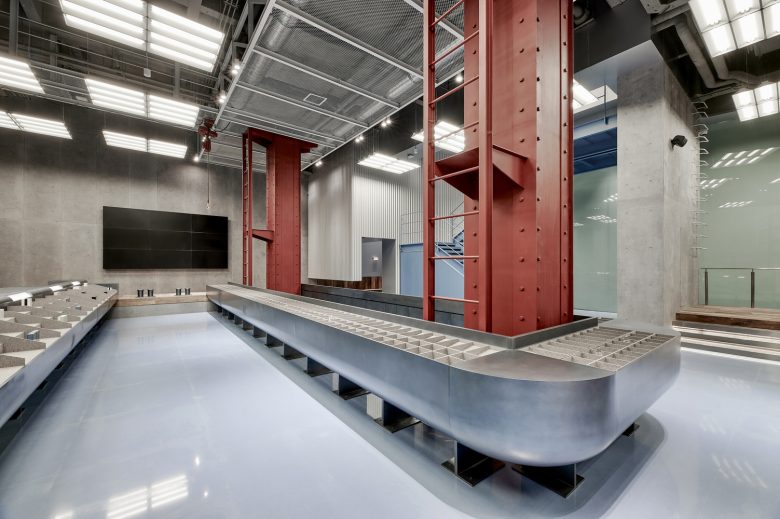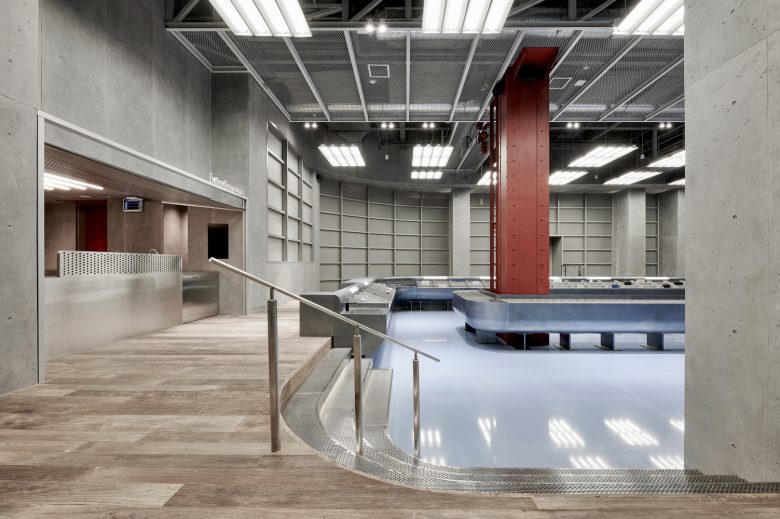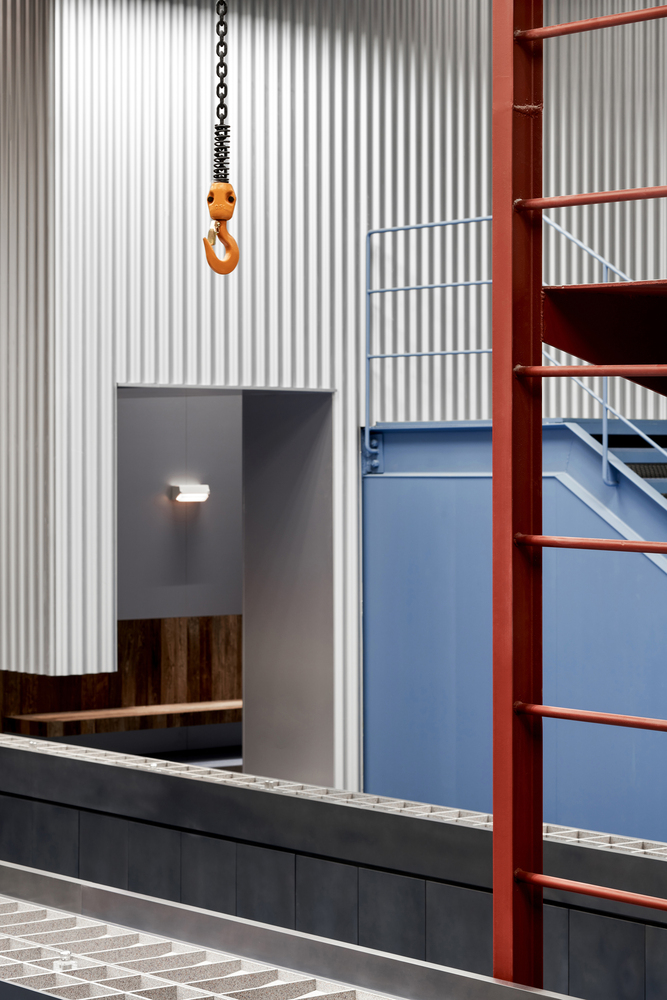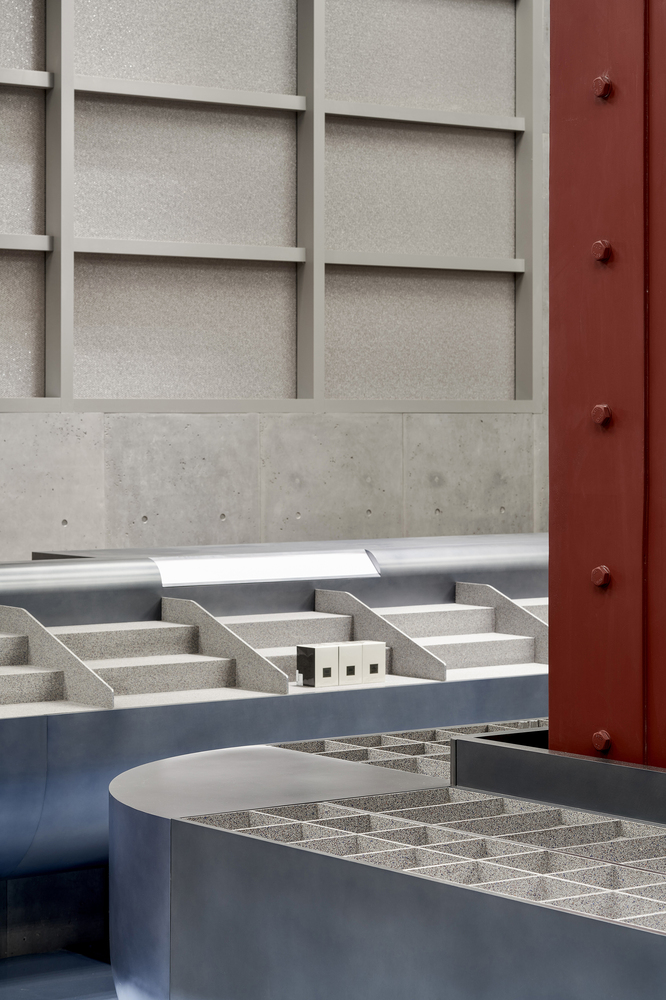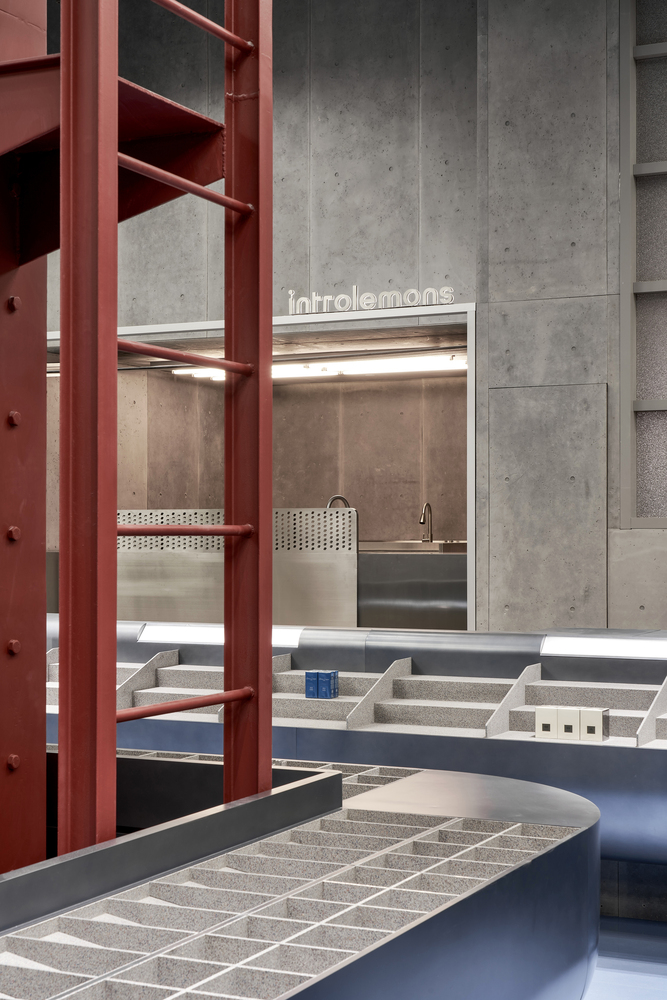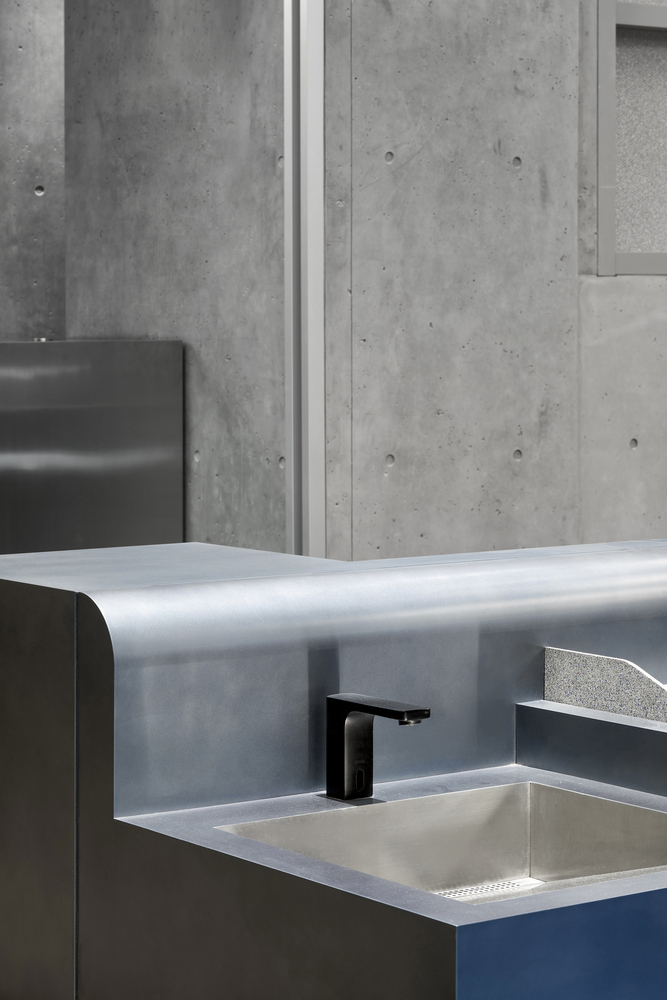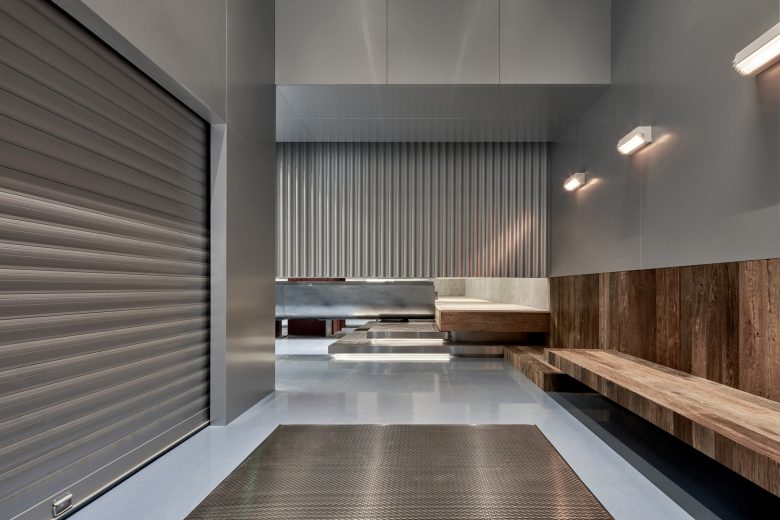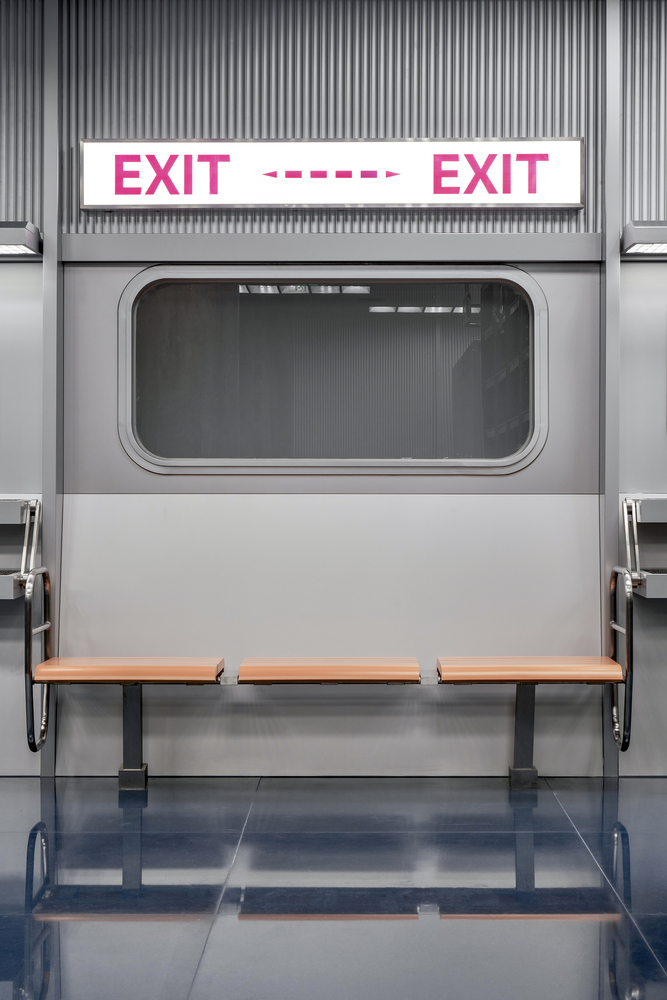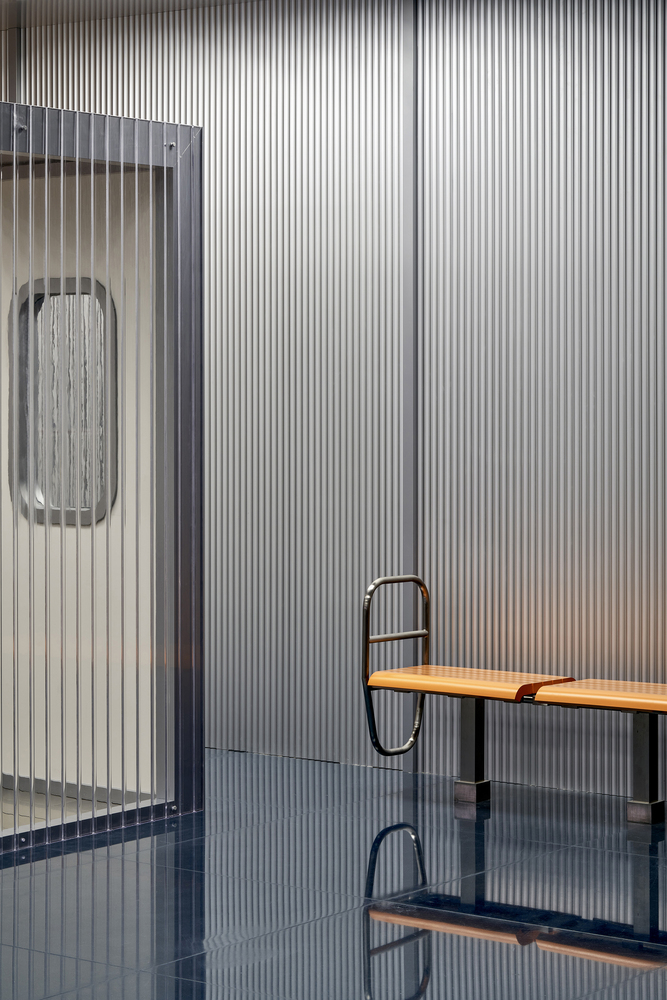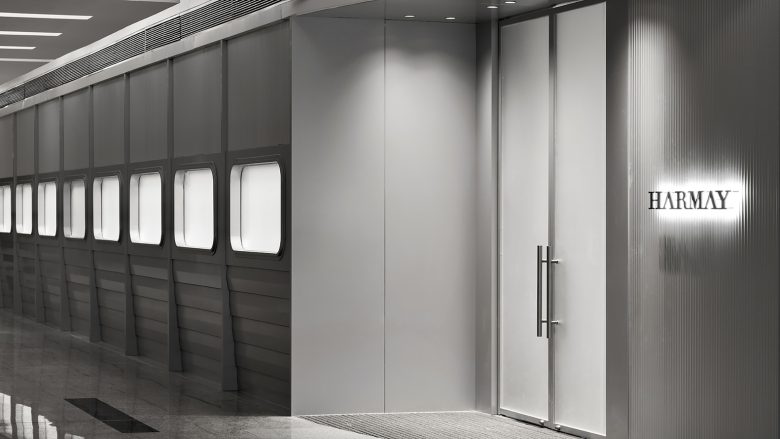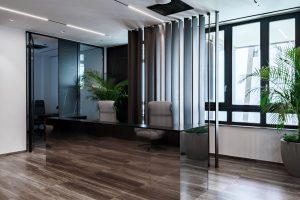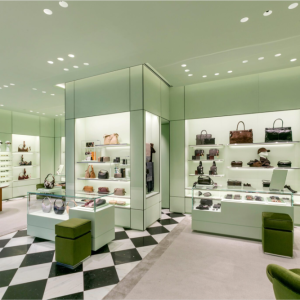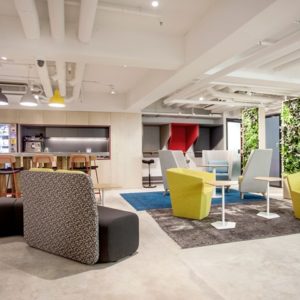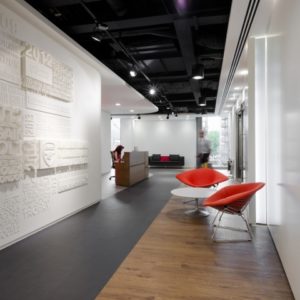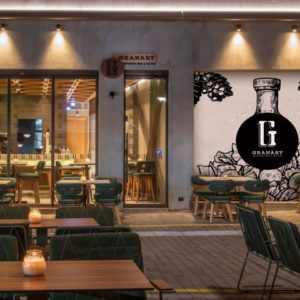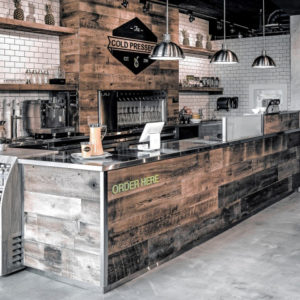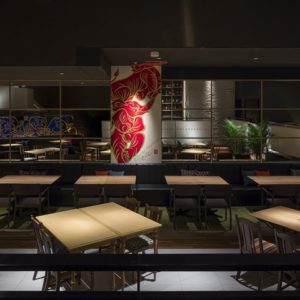

Situated in Guangzhou, a historic port city in southern China, our completed interior design project draws inspiration from the city’s maritime heritage and cultural significance. The concept takes cues from the city’s role as a trading hub and the starting point of the maritime Silk Road.
The space is divided into two levels, with the ground floor accessed from the street. The main entrance features a perforated stainless steel grille and aluminum panels on the walls and ceilings, creating a visually striking composition. The material transitions guide visitors through the space, while a wave-shaped aluminum sheet acts as both a visual barrier and a guide.
Upon entering the interior, a sense of tranquility and openness is experienced. An elevated wooden platform offers a panoramic view of the entire space, while a blue staircase becomes the visual centerpiece, evoking a seaside atmosphere. The ground floor features aluminum frames, glass curtain walls, and concrete columns, reminiscent of a dockyard. Red steel columns with mechanical hooks create a visual resemblance to port cranes.
The design concept employs a montage technique, combining scenes related to sea, shipping, and port. Different perspectives and associations are created as viewers’ gazes shift, triggering a narrative and flashback effect. Props such as furniture, display stands, and partitions are strategically placed, emphasizing core elements and creating a dynamic visual experience. The props also serve functional purposes, guiding circulation, dividing areas, and displaying products.
Through color, texture, and form, the design aims to stimulate viewers’ imagination and create a rhythmic transition between scenes. The composition of the space reflects the historical and cultural context of Guangzhou, inviting visitors to explore and engage with the maritime narrative.
Architects: NIHILII STUDIO
Lead Architect: Fuzi He
Design Team: Mengjie Li, Jiayao Wang, Ouyang Zijie, Yang Yang
Photographs: Bowen Gu
